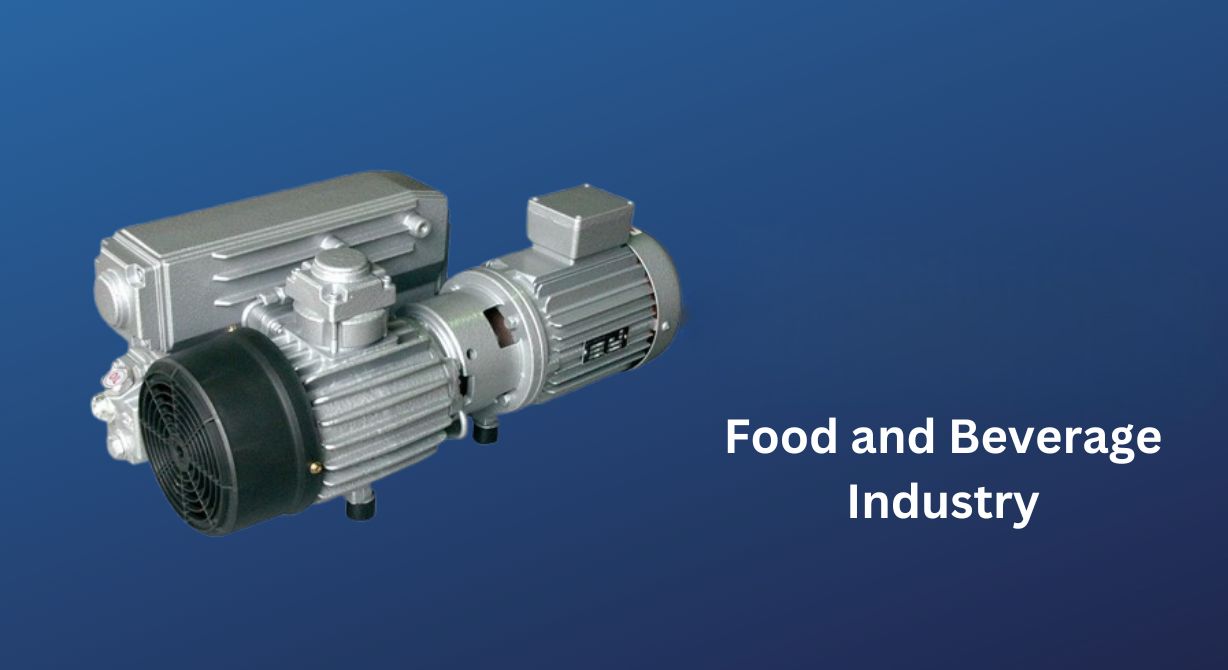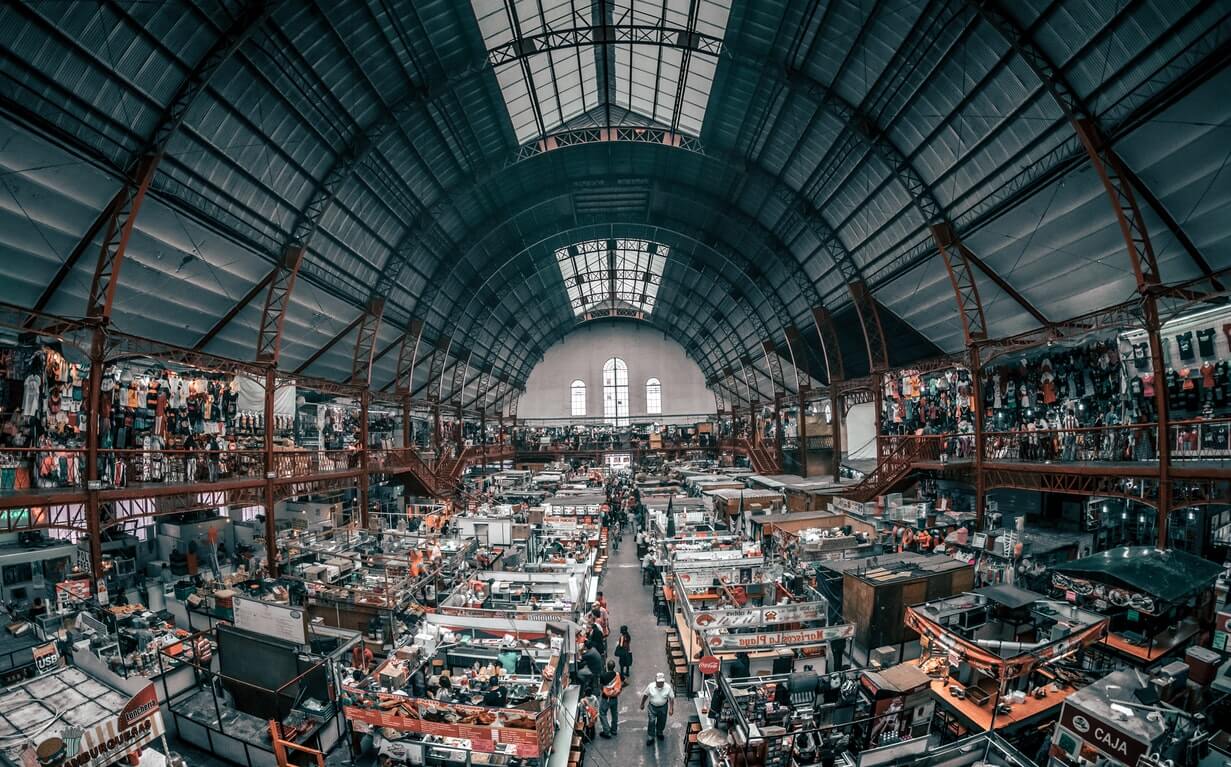Which Industries Rely on Vacuum Pumps? Top Sectors That Depend on Vacuum Technology
Which Industries Rely on Vacuum Pumps? The Most Critical Sectors Depending on Vacuum Technology
Food and Beverage Industry
The food and beverage industry is one of the sectors where vacuum pumps are most widely used. Vacuum packaging is a critical technology for extending the shelf life, preserving freshness, and preventing spoilage of food products. This process reduces oxygen contact, inhibiting microbial growth and maintaining product quality. For example, products like meat, cheese, vegetables, and ready meals stay fresh longer with vacuum packaging. Additionally, vacuum freeze-drying (lyophilization) technology is commonly used in the production of coffee, fruits, vegetables, and instant foods. In this method, vacuum pumps provide a low-pressure environment to facilitate water sublimation, preserving the nutritional value of the product. Pumps used in the food industry must comply with hygiene standards. Pumps made from stainless steel or specially coated materials ensure food safety. An incorrect pump choice can lead to product contamination, resulting in health risks and financial losses. Therefore, ease of cleaning and corrosion resistance are critical factors in the selection process.

Semiconductor and Electronics Industry
The semiconductor and electronics industry heavily relies on vacuum pumps. In this sector, ultra-high vacuum (UHV) levels are essential for the production of microchips, integrated circuits, and other electronic components. Processes such as plasma deposition, dry etching, and ion implantation require an extremely clean and low-pressure environment. This environment is provided by dry vacuum pumps or turbomolecular pumps. Dry pumps, being oil-free, minimize contamination risks and offer reliable performance in the production of sensitive electronic components. For instance, in cleanroom environments used for semiconductor production, even the smallest particle can negatively impact product quality. Therefore, pumps must operate with high precision and require minimal maintenance. Energy efficiency is also important in this sector, as production facilities typically have high energy consumption. Pump selection must align with both technical requirements and operating costs.
Pharmaceutical and Biotechnology Sector
The pharmaceutical and biotechnology industry extensively uses vacuum pumps in drug production, sterilization, and laboratory processes. Vacuum distillation is a fundamental method for purifying active pharmaceutical ingredients (APIs). This process allows the separation of chemical substances at low temperatures, enhancing product purity. Similarly, crystallization processes require a low-pressure environment to meet high-quality standards in drug formulation. Vacuum pumps also play a critical role in lyophilization processes for the long-term storage of vaccines, antibiotics, and other sensitive drugs. Hygiene and contamination control are vital in this sector. Therefore, dry pumps or specially coated pumps are preferred. Pumps must comply with Good Manufacturing Practices (GMP) standards to ensure the reliability of production processes. Additionally, in laboratory settings, low noise levels in pumps are important for employee comfort.
Chemical and Petrochemical Industry
In the chemical and petrochemical industry, vacuum pumps are used in processes such as vacuum distillation, gas evacuation, chemical substance transfer, and solvent recovery. Due to the presence of corrosive gases and chemical vapors in this sector, pumps must be made from corrosion-resistant materials. Liquid ring pumps provide high performance in environments with moisture or chemical vapors and are frequently preferred in such applications. For example, in oil refineries or chemical production facilities, vacuum pumps enhance process efficiency and ensure the safe evacuation of hazardous gases. Energy efficiency is a key criterion in this sector to reduce operating costs. Additionally, ease of maintenance and durability of pumps play a critical role in ensuring uninterrupted production processes. An incorrect pump choice can lead to system failures, production losses, and high repair costs.
Aerospace Industry
The aerospace industry uses vacuum pumps in space simulation chambers, material testing, and composite manufacturing processes. High vacuum levels are necessary to simulate space conditions, and these environments are typically provided by turbomolecular pumps or cryogenic pumps. In composite material production, low-pressure environments are critical for resin transfer and vacuum bagging processes. For example, high-performance materials like aircraft wings or satellite components are produced with precision using vacuum technology. In this sector, the reliability and precision of pumps are essential for the accuracy of test results and product quality. Additionally, compact pump designs enable easy installation in limited spaces, and energy efficiency provides cost advantages in long-term testing processes.
Automotive Industry
The automotive industry employs vacuum pumps in production processes, particularly in vacuum molding, surface coating, and component assembly. Vacuum technology is essential for producing high-quality and precise results in components such as headlights, plastic panels, and interior trims. Rotary vane pumps offer a cost-effective solution and are widely used in these applications. In automotive production facilities, low noise levels in pumps enhance employee comfort and support production efficiency. Additionally, compact designs facilitate easy integration in limited production spaces. Energy efficiency contributes to environmental sustainability goals and reduces operating costs. The durability of pumps is critical for long-term use in demanding production environments.
Energy and Renewable Energy Sector
In the energy sector, particularly in renewable energy technologies, vacuum pumps are used in solar panel production, wind turbine components, and nuclear energy applications. Vacuum coating processes play a critical role in producing thin-film coatings to enhance the efficiency of solar cells. Dry pumps reduce contamination risks and provide high precision in these processes. In nuclear energy facilities, vacuum technology is used for gas evacuation and system reliability. Long-lasting pumps reduce maintenance costs, and energy efficiency optimizes operating expenses. For example, vacuum pumps used in solar panel production provide a low-pressure environment for high-quality coatings, enhancing production efficiency. Additionally, environmental sustainability goals in the renewable energy sector encourage the use of energy-efficient pumps.
Medical and Laboratory Applications
In medical and laboratory settings, vacuum pumps are used in analytical devices, mass spectrometers, electron microscopes, and vacuum ovens. High vacuum levels are necessary for precise analyses and scientific experiments. For example, electron microscopes require a low-pressure environment, which is provided by turbomolecular pumps. Aspiration devices used in hospitals also rely on vacuum technology and play a critical role in surgical procedures. In these applications, low noise levels in pumps are important for patient comfort and laboratory employee productivity. Additionally, high reliability ensures the accuracy of experimental results and the safety of medical procedures. Compact pump designs facilitate easy installation in limited laboratory spaces.
Glass and Ceramics Industry
The glass and ceramics industry uses vacuum pumps in coating, shaping, and material processing. Vacuum coating is used to apply anti-reflective or decorative coatings to glass surfaces, requiring high vacuum levels. Rotary vane pumps or dry pumps are commonly preferred in these applications. In ceramic production, vacuum technology increases material density and reduces porosity. The durability and corrosion resistance of pumps are critical for long-term use in this sector. Additionally, energy efficiency is an important factor in reducing production costs.
Metallurgy and Materials Science
Metallurgy and materials science use vacuum pumps in melting, coating, and material analysis processes. Vacuum melting furnaces require a low-pressure environment to produce high-purity alloys and specialty metals. These processes use turbomolecular pumps or cryogenic pumps. Additionally, surface coating processes rely on vacuum technology to impart corrosion resistance or decorative properties to metals. The precision and reliability of pumps directly impact material quality. In this sector, ease of maintenance and energy efficiency are important for optimizing operating costs.
Vacuum pumps are a cornerstone technology in many areas of modern industry. Sectors such as food, semiconductors, pharmaceuticals, chemicals, aerospace, automotive, energy, medicine, glass, and metallurgy rely on vacuum technology. The unique requirements of each sector necessitate careful evaluation of factors such as pump type, material quality, energy efficiency, noise levels, ease of maintenance, and installation suitability. The right pump selection optimizes production processes, reduces costs, and enhances product quality. Industrialists should consider the manufacturer’s technical support, service network, and industry expertise when selecting vacuum pumps tailored to their sector’s needs. This ensures long-term efficiency and competitive advantage.


